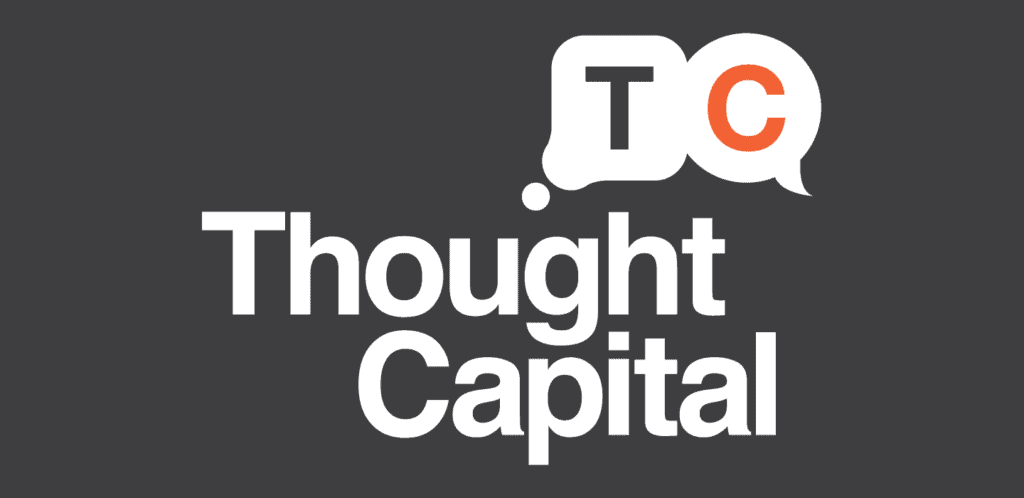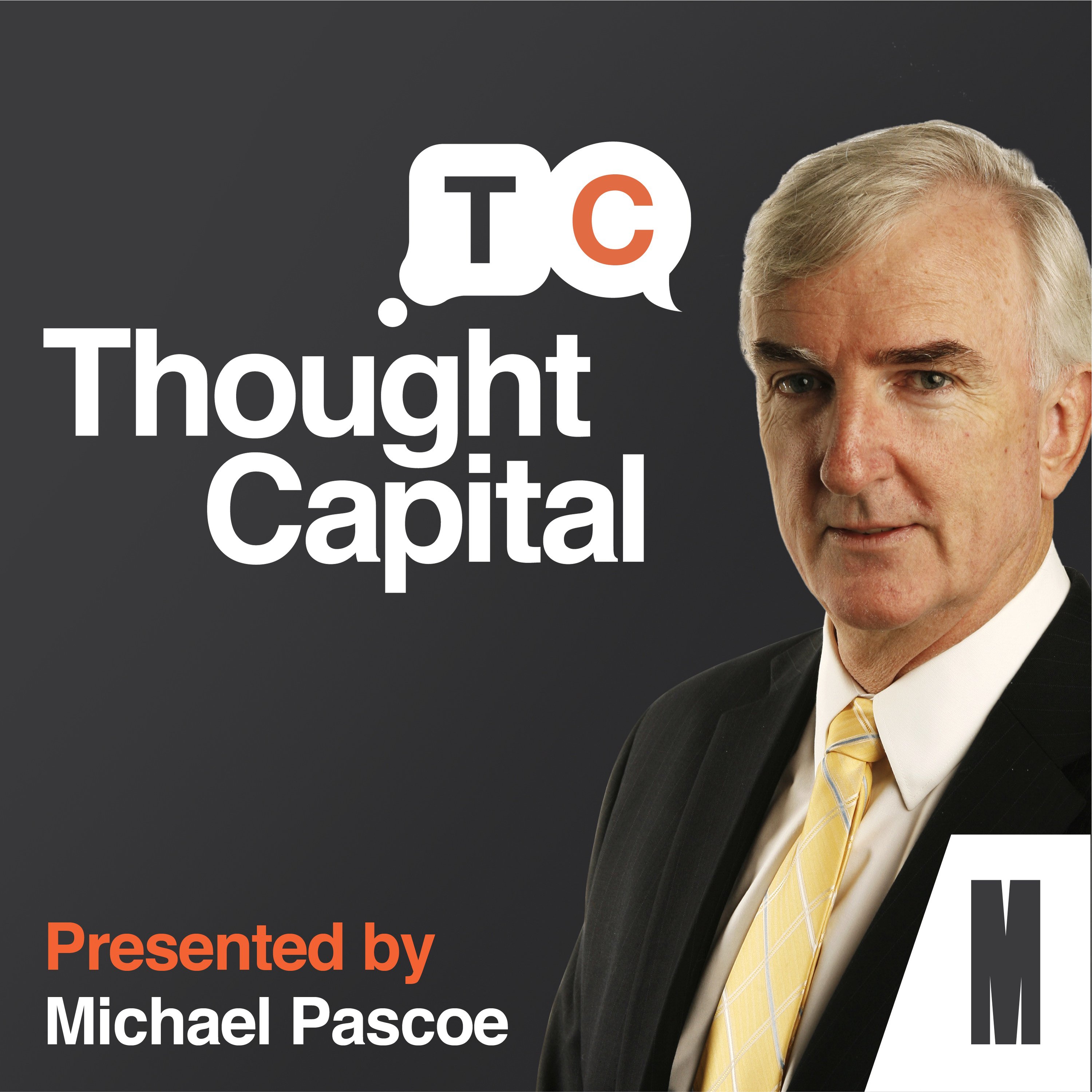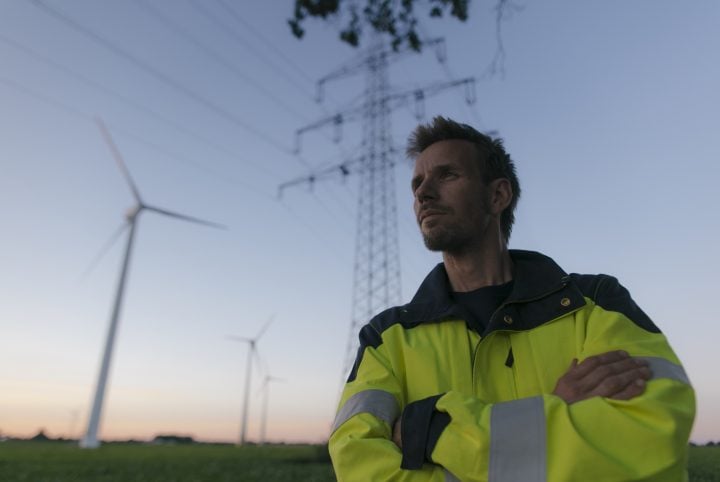Michael Pascoe: Welcome to Thought Capital, the podcast that delves into the wealth of ideas created by the experts at Monash Business School in Melbourne, Australia.
Michael Pascoe: What’s ahead for entrepreneurs? What trends will shape their businesses? How competitive is Australia when it comes to start-ups and entrepreneurship, and is entrepreneurship something you can actually learn?
David Gilbert: There are emerging markets that are going to be demanding of some of our high quality products that could be done at a boutique level, at a high margin. Entrepreneurship is the future, but we need action not talk.
Michael Pascoe: Professor David Gilbert is Director of Entrepreneurship at Monash and has a long career in international business working throughout Asia. He has founded and invested in 12 different companies and his research covers entrepreneurial capability, innovation and commercialisation as well as technology, digital transformation and incubation. Welcome to Thought Capital. Professor, what is this entrepreneurship thing?
David Gilbert: Entrepreneurship really is around the starting of new businesses. However, it’s also around a mindset, and really I concentrate more in the university on the mindset piece, and there’s a couple of reasons for that. One is that not every student’s going to be a start-up founder, but likewise, everybody’s quite interested in it. So the appetite for entrepreneurship is quite phenomenal.
Michael Pascoe: Is everyone starting a business an entrepreneur?
David Gilbert: No, I don’t think so. If you look at a small business that’s just starting down at the strip shopping centre and is doing the same as everybody else, I think you’d be pushing the limits to say that that’s an entrepreneurial business.
Michael Pascoe: What makes an entrepreneur then?
David Gilbert: Yeah, look, I think that they have to create some sort of new value. So whether that be new processes, systems, products, services, bringing something new to the market that somebody else hasn’t done is where we see a lot of the entrepreneurial activity.
Michael Pascoe: So it’s not enough to be a start up, you’ve gotta be an innovative start up, is that what you’re saying?
David Gilbert: My personal perspective is yes. If you look at a lot of the stats and stats bore people, they go and they count businesses that haven’t even started. Are they truly entrepreneurial? Probably not. The maker of start-ups being Silicon Valley, what they’re doing is really high growth entrepreneurship which creates disruption in business systems, product service offerings, market fit, and even development of new markets. That’s where I’d love to see our focus in Australia around entrepreneurship instead of just ‘anybody who starts a business is an entrepreneur’.
Michael Pascoe: Would you say Australia is an entrepreneurial country, or do we still hark back too much to the Hills Hoists and the stump-jump plough?
David Gilbert: Oh, we’ve come a little ways since then if we throw WiFi in there. I think we are entrepreneurial, but again, I’ll separate that into businesses and mindsets. I think we do have an entrepreneurial mindset, but I’m not too sure that we’re highly entrepreneurial in the majority of the businesses that we create.
Michael Pascoe: Can we change that?
David Gilbert: Most definitely. Most definitely.
Michael Pascoe: How?
David Gilbert: I think that comes into your introduction, can we actually teach it? Well, my strong opinion is if we understand what we’re teaching and how we’re teaching it, yes we can. There is a number of pieces that have to come into this puzzle. I don’t think that our governments of any persuasion actually understand what is required to create an entrepreneurial facilitated environment.
Michael Pascoe: Do entrepreneurs have a bad name?
David Gilbert: That’s a great point. Because I think when I left Australia, we were just at the end of that sort of the (Christopher) Skase and (Alan) Bond period of the cowboys and that really gave entrepreneurship a horrid name. And I think we’re still recovering from that. So those largesses, the rip-offs were very detrimental to our current cause.
David Gilbert: So yes, I think that Australia is a little fearful of that, hence that mindset and business separation. We’re explorers, we’re experimenters, we have a fantastic education system, fantastic research that we fail to translate into anything, yet we just don’t produce the goods and that really concerns me.
Michael Pascoe: You say it can be taught, I can’t think of a single entrepreneur who was taught entrepreneurship. I don’t think Bill Gates or any of those guys had it available to them. Even if they’d stuck with their degree.
David Gilbert: Well, I’d probably challenge you on that one. Many of the top 500 have come out of the business school at Stanford. Their translation of research has been phenomenal. They’re in that ecosystem that is pretty darn dynamic.
Farley Blackman: Can Entrepreneurship be taught? I think what really can’t be taught is drive and the ability to energise others.
Michael Pascoe: Farley Blackman is the CEO of York Butter Factory Ventures, a co-working space which offers support for start-ups, scale-ups and corporates within the tech industry.
Farley Blackman: I think individuals that have that, are going to have a better chance of success. I just have not seen that successfully taught and I think it’s a big part of being an entrepreneur. A well-rounded entrepreneur is better than a single-focus entrepreneur. So someone who’s extremely technical has to either surround him or herself with individuals that provide the other skills, but even if they do that, having a basic understanding of commercials, basic understanding of finance and basic understanding of marketing is important. And I think those things can be taught.
Michael Pascoe: David Gilbert start-ups are hard and most fail. Is it hard to teach that to students and still keep them interested and passionate?
David Gilbert: Absolutely. And this is one of my gravest concerns. And one of the first things that I will say to students is that, “You’re going to be darn lucky if your first business is successful, let’s just put that straight on the table. And it’s going to take a heck of a lot of hard work. And you’re going to have to learn to not think that you’re going to be doing everything by yourself.” And this is I think one of the gravest errors that we make is the entrepreneur thinks they’ve got to do everything. And what they end up doing is everything really mediocre. They’ve gotta be able to reach out, they’ve got to be able to connect and make collaborations with communities, with individuals, and to be a little bit cheeky at times. And that’s where students have an advantage.
Michael Pascoe: You’ve cited the American example, obviously the hot bed of Silicon Valley. Much is made of American start-ups and their access to venture capital. How big a role does that play?
David Gilbert: I don’t think venture capital is as big an issue as everybody makes it out to be. If you’ve got a great team around a validated idea, you will get capital. I’ll always look at the team first before the idea because the idea is something that can change, the team is the one that’s going to execute on that idea.
Michael Pascoe: What do you look for on the team?
David Gilbert: Certainly diversity of capability. I look for people that can listen. They’re willing to learn. What I call humble excellence. People that are willing to go on that journey of learning but are able to take feedback and not take it critically.
Michael Pascoe: Farley Blackman, you’ve seen many entrepreneurial success stories. What makes a great entrepreneur?
Farley Blackman: What makes a great entrepreneur? Ideas are cheap, it’s the execution, it’s the commitment. It’s the ongoing rigour and discipline that makes all the difference and that comes from the people. There needs to be confidence but not ego. There needs to be courage but not blind courage. There needs to be some awareness of others and what’s around, but at the same time the ability to dismiss the naysayers and push forward. So it’s finding someone that is quite self-reflective and knows his or her strengths but also his or her weaknesses and is able to not only take the idea forward but build a team to fill in the gaps. To be honest, those people are rare.
Michael Pascoe: Well, 10 years ago, Australia’s Aimee Marks founded feminine hygiene company, the TOM Co. She’s turned it into a very successful business, but it took a lot of hard work and perseverance to get it off the ground.
Aimee Marks: It has been a relentless journey early on. Like waking up, I remember, every day for a good two-year period and just hitting refresh on my emails first thing in the morning almost with my eyes half closed. There were probably three or four things that could have happened on any odd day that would have really shut the business down to be frank, and I think we were just on the edge for so long. I think a lot of entrepreneurship and business and start up is about a mindset of possibility and relentless hard work and passion. And all of those ingredients were there in their purest form.
Aimee Marks: So there was a piece around timing too. The market was starting to open up to organics and wellness and there was this sort of looming piece around women’s empowerment. Having a couple of people along the way believing in me, which was really pivotal. So a family friend said, “You know what, I’m going to put ten grand into this for you to go and start these businesses.” For me I just… The most incredibly resourceful return on that I could imagine. Then we did the packaging and pulled together the brand and was presenting that to grocery stores and, and that was my entire sales package.
Michael Pascoe: Professor David Gilbert, could government be doing more to assist entrepreneurs, or if you want to be an entrepreneur, you got to do it?
David Gilbert: Look, there’s quite a lot of people that, and particularly my American friends who believe that government should get the heck out of business. I don’t really subscribe to that. I think that there needs to be institutional factors that are supportive of entrepreneurship and if we see in Australia we’re bound up in red tape. We have quite an inflexible labour market. I saw a report from one think tank that said we had 176 billion dollars of red tape last year.
David Gilbert: And we’re last in the OECD world in terms of facilitating businesses. That staggers me. We really need to get better at that and I think governments quite honestly need to get more young people involved. I think we need a change up in thinking and I cannot see why we are not engaging with the diversity that Australia has to offer, which is unrivalled in the world I think.
Michael Pascoe: Farley Blackman again.
Farley Blackman: Innovation and entrepreneurship in Australia, there’s a big enough economy here that you can actually be an entrepreneur and never leave. There is enough customers, there’s enough diversity, there’s enough things to do to grow a business to quite a substantial size. There’s always a plus and minus to these things. I think the downside of being a big enough economy is that sometimes you don’t look, and Australians don’t look beyond the borders of Australia. There’s massive opportunities obviously in Southeast Asia.
Farley Blackman: By comparison, New Zealand is such a small country that the entrepreneurs in New Zealand from the minute they think about starting a company, they’re thinking, “Okay, what do I need to do to go beyond our national borders? So am I going to the US? Am I going to Southeast Asia first?” That kind of a growth mindset leads to different opportunities. And I would say Australia could probably learn from some of that.
Michael Pascoe: Professor David Gilbert specifically, if we make you dictator for a week, what would you do?
David Gilbert: Look, I think we need to become competitive on tax. If we’re looking at a company tax rate of 30% compared to 20 in other areas, why would you come and invest in Australia? So straight away, I think we need to have some tax relief for start-ups specifically. I also think we need to look at the flexibility around the labour market. People in start-up cannot afford to take on full-time employees. We’re giving the same offsets or same advantages to massive big companies as we are to start-ups and that doesn’t make sense.
Michael Pascoe: I’ve got a great idea. What are the three things I need to do with it to be a successful entrepreneur?
David Gilbert: One, I’d socialise that idea. I’d then start to think about, “Okay, well what are the capabilities that I need to actually look at this?” And then I’d be talking to those people who are either my end users or customers in that value chain and starting to test that concept with them. And if you’re not getting good feedback from them, it’s not the right idea. It might be the right problem, but it’s not the right concept. But even then you’re brokering relationships already. So therefore, I’d be adjusting, retesting, re-validating and going with that.
Michael Pascoe: Aimee Marks, again.
Aimee Marks: I think people have this philosophy that there’s this complex recipe to starting a business. It’s actually really simple it’s sometimes just about doing it, getting your foot in the door, having a note book, writing down your list of things to do. Forget the complex business plans, listen to your gut, surround yourself with good people that you can check in with like a mentor on a weekly basis, that’s critical in the start-up phase. Get in to the stores and start talking with the customers. So that’s exactly what I did. So mum and I would drive around with our posters in the car and putting them in the windows of the health food stores and listening to the women behind the counters and the men behind the counter and asking them what they thought about the product. And we were taking on feedback and being super agile and changing packaging. It got to the point where it was in 60 stores and the commercials weren’t stacking up but people wanted more so we had to be in grocery to really create that impact and shift. Two years back and forth to get buyer meetings across the line and sell the dream and then we finally got to a point where I received an order for 700 stores for tampons and pads. We hadn’t yet sold pads on the market so we had to source supply and again relentlessly get to a point where there was no compromise on product. We had no marketing budget at that time. But continued to build on that purpose and the conversation. We were just in real relationships with real people. And it was just that time when Facebook was starting so I really felt we rode that wave quite well.
Michael Pascoe: Entrepreneurs need to be on top of their game to maximize business opportunities. We’re going to look at some entrepreneurial trends and analyze how important they’re going to be in shaping the future of business. One trend we’re seeing a lot of right now is women starting their own businesses. We’ll start by hearing from the TOM Co. founder Aimee Marks.
Aimee Marks: I’m really passionate about female entrepreneurship. I think our ability to keep multiple balls in the air at any given time while still having this emotional connectedness to building the thing that really matters, which is the business because we just have that maternal instinct that I think wants to nurture and build at the same time. We’re probably forced into a position where if we want to create a career that has longevity and is sustainable and meets flexibility from a family needs perspective, it’s either I find a flexible job when there’s not a lot of them around. This evolution of female entrepreneurship is building. Women are backing themselves and backing each other and, and I think it’s just the perfect time for women to be going out and starting businesses. It’s about the solidarity of the village, the sisterhood working together, not just starting businesses as silos. It’s actually female businesses helping one another and creating that movement and wave.
Michael Pascoe: Professor David Gilbert, you mentioned diversity a number of times. More and more women are running their own businesses according to the census data. Who else is starting businesses in Australia today?
David Gilbert: I’m seeing that there’s a very, very strong trend in terms of young people starting businesses of all backgrounds. In Australia I think there’s also other trends around refugees starting businesses and we’ve just done a big research piece over in Solomon Islands around poverty alleviation through entrepreneurship, and that is a tool that can look to get people out of their poor social surroundings, but likewise to also bring that diversity from their own countries where things are done differently, things are perceived differently. So I think that that’s going to be a trend that continues in the future. And likewise, we’ve got an aging population, so we’ve got people who are moving out of the workforce that have great capabilities and skills that don’t think that they’re at the end of their use-by date.
David Gilbert: So we’re seeing that sort of grey entrepreneurship as they term it, starting to ramp up as well. The projections are that that women are going to be starting more business and more highly educated women. So they’re seeing it as a different career path.
Michael Pascoe: The sharing economy trend, does that mean anyone can be an entrepreneur if they can work an app? If you’ve got a car or a house, you can become a sort of an entrepreneur through Uber and Airbnb. Young kids are selling their clothes through apps, are they entrepreneurs?
David Gilbert: Yeah, look, I think they are, I think they are. Whether they’re going to be successful entrepreneurs or not, I’m not too sure. If these early start-ups, whether they’re app based or whatever, or shared economy based are a stepping stone to something else, then that’s fantastic. I don’t think that there’s enough place in the marketplace for everybody to be selling stuff through apps and being successful at it.
David Gilbert: You’d be surprised how many businesses have said, “I’ve got an app and gee, it’s going to make me a million or trillion dollars.” Well, yeah, everybody’s got one and they’re not going that well, to be honest.
Michael Pascoe: Turning it around another way, does the sharing economy make it easier perhaps for entrepreneurs that they have access rather than ownership?
David Gilbert: Yeah, totally. When I came back to Australia, it was right on the verge of digital business, and it was an eye-opener for me. It was phenomenal to see different business models, different ways of doing business. The holy grail of business, making money while you’re asleep suddenly became a reality. Far more opportunity now than there was when I certainly started business.
Michael Pascoe: Other trends, the sustainable trend, how important are sustainable and ethical businesses for start-ups?
David Gilbert: Phenomenally important with young people. This is one of the things that I’ve loved about coming into university. The sense of social development and social capital around new ventures is inspiring. So when they’re developing a new product or services, a large percentage of young people have that firmly in mind. What is going to be the impact upon the environment, upon society upon expanding populations, et cetera? So I find that very inspiring and I think that’s going to continue to be a major, major trend.
Michael Pascoe: Farley Blackman again.
Farley Blackman: I’m really excited about people and companies that are open to looking at beyond the status quo. You know, where we are in space right now is extremely exciting, where we are in transportation, especially as we move to a shared economy and the potential that can bring to reduce emissions. A fix to the environment, those sorts of things are incredible and I think there are a lot of entrepreneurs working on that. But in order to make those things really stick, people have to be open to reduce plastic, to reduce emissions, to really innovate. To think about what’s going to break your business as a big company and what your options are there as a small company. It takes courage, it takes drive, it takes ability to look at things differently, and to listen differently.
Michael Pascoe: Perhaps a subset of the sustainable trend is the local trend, eat local, eat food in season, support your local farmer. Is that a lasting movement or minority fad?
David Gilbert: I think with global supply chains, I’m not too sure it’s going to be lasting. However it will be boutique, but that’s not to say that it’s not going to continue as a trend. The whole food providence issue is one that I find very fascinating and I’ve had a business in that area, and I’ve had students who have, for example, gone to New York, and started businesses around Gro-Walls.
David Gilbert: And the thing is they’ve not seen it as a food production business. It’s about activating a community. So if we’ve got food within that community, it’s about the community and not the actual product or service that they’re developing. That notion around strategic entrepreneurship I think is very, very interesting.
Michael Pascoe: The total opposite, the global trend, the internet allows a local entrepreneur to deliver globally. Have we even began to fully exploit that?
David Gilbert: No, and Australia is behind the curve ball on that one too. And this surprises me because we are so geographically isolated, but perhaps part of that supply chain issue is that it’s more costly for us to ship. So have we realized it? No, I don’t think so. But I still think that we’re going to be seeing a lot more of our start-ups go offshore.
Michael Pascoe: Social media trends. Many entrepreneurs are still using traditional methods to forge ahead in industry and technology. Some of the most successful entrepreneurs are influencers on social media with millions of followers. Where’s that going?
David Gilbert: Oh, it’s here to stay I think. So if you’re not on that bus, you better get on it really quickly. The different channels to market give you different opportunities. So I’m not saying neglect the old traditional channels, but you’ve got to have a digital presence. And the beauty of digital, it doesn’t take too many resources to be effective. Building your brand, building your profile, getting that out through digital channels is an amazing tool for businesses and it doesn’t matter how old you are, you can learn digital. I learned it, so anybody can.
Michael Pascoe: Has technology hijacked the idea of entrepreneurship and start-ups?
David Gilbert: Great question. Often it does because we see the shiny, it’s the tech, it’s the tech that’s amazing. Without understanding the problem that it’s actually delivering a solution to, and it really is a delivery tool. When we do investigate the problem quite carefully and understand it from an end user or a customer’s perspective, the low-tech approach can be actually far more suitable than going and spending tens of thousands of dollars on your app and finding that doesn’t meet the needs of the customer. So the technology has hijacked I think a fair bit of successful entrepreneurship because we’re focused on the tech and not on the impact and outcome.
Michael Pascoe: David Gilbert, thanks for talking to us. In this episode we also heard from Farley Blackman, CEO of YBF Ventures and Aimee Marks, founder of the Tom Co. Thank you both.
Michael Pascoe: You’ve been listening to Thought Capital from Monash business school. You can find more episodes on iTunes, Spotify, and Stitcher or wherever you listen to podcasts. This episode was produced by Tina Zenou. Editor is Nadia Hume. Sound production by Gareth Popplestone. Executive producer is Helen Westerman. Thought Capital is recorded at Monash School of Media, Film and Journalism.




